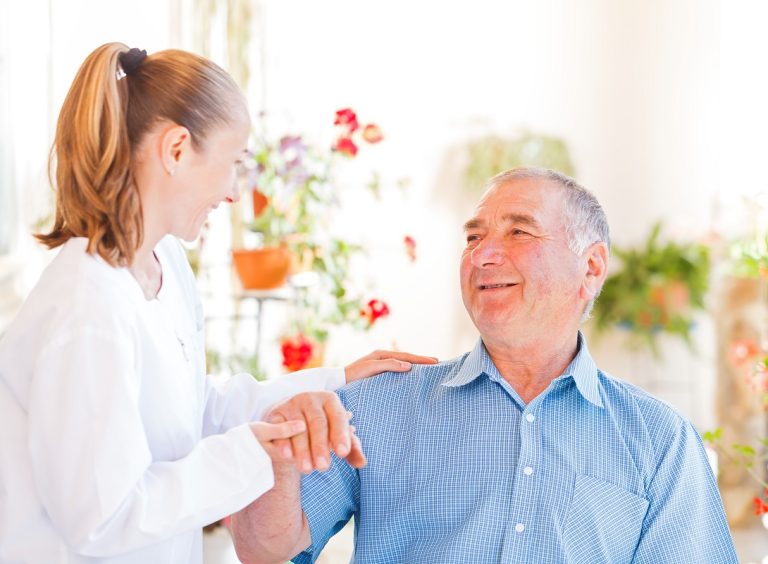- Staying connected and involved with elderly family members is key to giving them the best care.
- Help them with daily activities, plan fun activities, listen to and offer support.
- Ensure their health and safety by providing regular medical checkups and hiring caregivers if necessary.
- Provide nutritious meals rich in vitamins, minerals, and other essential nutrients.
- Promote mental and emotional well-being through listening, validation, cognitive stimulation, and social interaction.
As your family members age, it’s essential to make sure that they receive the best possible care to maintain their health and well-being. Providing care for elderly family members can be a challenging and demanding task. However, it can also be a rewarding experience to ensure your loved ones receive the attention and support they need. This guide will discuss five tips for caring for your elderly family members.
1. Stay Connected and Involved
One of the most important things you can do to care for your elderly family members is to stay connected and involved in their lives. Whether you live near or far away, call, visit, or communicate with them regularly. Doing so can help them feel loved, supported, and valued, improving their mental and emotional well-being.
Here is how you can stay connected and involved with them:
Call, Visit, and Connect Regularly
It’s important to make regular time to call, visit or connect with your elderly family members. Staying in touch will help them feel supported and connected, vital for their mental and emotional well-being. Even if you live far away, you can still stay connected through phone calls, video chats, social media, and other messages.
Help with Their Daily Activities
Your elderly family members may need help with their daily activities, such as grocery shopping, laundry, or taking medications. If you live nearby, offer assistance whenever possible to ensure they have what they need and can be as independent as possible.
Plan Fun Activities

Make it a point to plan fun activities each week or month with your elderly family members. You can go to the movies, visit a park or museum, attend local events, or just walk around town together. These activities will give them something positive to look forward to daily and keep them engaged and active in the community.
Listen and Offer Support
One of the most important things you can do is be an attentive listener and offer support. When they need to talk or voice their concerns, be there to listen without judging or offering advice. This will help them feel heard and understood, essential for any relationship. Let them know that you are there for them no matter what.
2. Ensure Their Health and Safety
Another essential aspect of caring for elderly family members is to ensure their health and safety. Make sure that they receive regular medical check-ups and that they take their medication on time. Ensuring their living environment is safe and comfortable is also vital.
If your elderly family members require extra care or assistance with daily activities, consider hiring a caregiver or a nursing assistant. You could also modify their home to make it more accessible and safer. For example, you could install grab bars in the bathroom, ramps for wheelchair access, and non-slip mats.
3. Provide Nutritious Meals
As people age, their nutritional needs change, requiring a balanced diet that meets their specific needs. Healthy and nutritious meals are essential to ensure your elderly family members maintain their physical health.
Try incorporating foods rich in vitamins, minerals, and other essential nutrients into their diet. Encourage them to eat fruits, vegetables, lean protein, and whole grains. If they have any dietary restrictions or preferences, accommodate them.
4. Promote Mental and Emotional Well-being
Caring for elderly family members goes beyond just physical health. It’s also crucial to promote their mental and emotional well-being. As people age, they may experience loneliness, isolation, and depression.
To support your elderly family members’ mental and emotional health, listen to them, validate their feelings, and provide emotional support. You could also encourage them to participate in activities that promote cognitive stimulation and social interaction. For example, you could play games, do puzzles, or read books together.
5. Consider Hospice Care

When caring for elderly family members, consider hospice care services. A reliable hospice nurse can provide your elderly loved one with compassionate and personalized end-of-life care while helping your entire family cope. They will work with the patient to develop a plan considering their physical, mental, and emotional needs.
Hospice care also focuses on providing emotional and spiritual support to the patient while helping their family members cope with their loved one’s illness. Caregivers can take advantage of hospice services offered by Medicare, Medicaid, and other private insurance. These services are designed to help ensure seniors receive quality home care.
Final Words
Caring for elderly family members can be challenging, but providing them with the best care to maintain their health and well-being is essential. Staying connected and involved, ensuring their health and safety, providing nutritious meals, promoting mental and emotional well-being, and considering hospice care are all essential aspects of caring for elderly family members. By following these tips, you can ensure your elderly family members receive the care and support they need to live a happy and healthy life.











